DIPHENYLIODONIUM CHLORIDE
Synonym(s):DPI;NSC 134275
- CAS NO.:1483-72-3
- Empirical Formula: C12H10ClI
- Molecular Weight: 316.57
- MDL number: MFCD00011909
- EINECS: 216-049-8
- SAFETY DATA SHEET (SDS)
- Update Date: 2023-04-23 13:52:06

What is DIPHENYLIODONIUM CHLORIDE?
Chemical properties
WHITE TO LIGHT CREAM-YELLOW POWDER
The Uses of DIPHENYLIODONIUM CHLORIDE
Diphenyliodonium chloride is used as a reagent for electrophilic phenylation . It is used as a reactant for copper-catalyzed cross coupling reactions of purinesband arylation of anilines. It is involved in the preparation of acetylenic arylselenide and (arylmethylene)oxindoles. Further, it is employed in the preparation of aryl alkynes through Sonogashira coupling reactions.
The Uses of DIPHENYLIODONIUM CHLORIDE
Reactant for:
- Copper-catalyzed cross coupling reactions of purines and diaryliodonium salts
- Synthesis of acetylenic arylselenides
- Sonogashira coupling reactions for the preparation of aryl alkynes
- C-H functionalization for synthesis of (arylmethylene)oxindoles
- Arylation of anilines
- Studies on the visible-light photosensitive system-dlourescein yellow-bis(di-Ph iodonium)
- Investigating the properties of direct and sensitized photolysis of dispersed photoacid generators
What are the applications of Application
Diphenyliodonium chloride is a reagent used for electrophilic phenylation, e.g. of malonates and dithiocarboxylates
Properties of DIPHENYLIODONIUM CHLORIDE
| Melting point: | 233-235 °C (subl.) (lit.) |
| Density | 1.6151 (estimate) |
| storage temp. | Keep in dark place,Sealed in dry,Room Temperature |
| solubility | soluble in Methanol |
| form | Powder |
| color | White to light cream-yellow |
| Water Solubility | Soluble in water and methanol. |
| Sensitive | Light Sensitive |
| Merck | 14,7464 |
| BRN | 3574977 |
| CAS DataBase Reference | 1483-72-3(CAS DataBase Reference) |
| EPA Substance Registry System | Iodonium, diphenyl-, chloride (1483-72-3) |
Safety information for DIPHENYLIODONIUM CHLORIDE
| Signal word | Danger |
| Pictogram(s) |
 Skull and Crossbones Acute Toxicity GHS06 |
| GHS Hazard Statements |
H301:Acute toxicity,oral H315:Skin corrosion/irritation H319:Serious eye damage/eye irritation H335:Specific target organ toxicity, single exposure;Respiratory tract irritation |
| Precautionary Statement Codes |
P302+P352:IF ON SKIN: wash with plenty of soap and water. P305+P351+P338:IF IN EYES: Rinse cautiously with water for several minutes. Remove contact lenses, if present and easy to do. Continuerinsing. |
Computed Descriptors for DIPHENYLIODONIUM CHLORIDE
| InChIKey | RSJLWBUYLGJOBD-UHFFFAOYSA-M |
New Products
4-AMINO-TETRAHYDRO-PYRAN-4-CARBOXYLIC ACID HCL 4-(Dimethylamino)tetrahydro-2H-pyran-4-carbonitrile 4-Aminotetrahydropyran-4-carbonitrile Hydrochloride (R)-3-Aminobutanenitrile Hydrochloride 3-((Dimethylamino)methyl)-5-methylhexan-2-one oxalate 1,4-Dioxa-8-azaspiro[4.5]decane 5-Bromo-2-nitropyridine Nimesulide BP Aceclofenac IP/BP/EP Diclofenac Sodium IP/BP/EP/USP Mefenamic Acid IP/BP/EP/USP Ornidazole IP Diclofenac Potassium THOMAIND PAPER PH 2.0 TO 4.5 1 BOX BUFFER CAPSULE PH 9.2 - 10 CAP SODIUM CHLORIDE 0.1N CVS ALLOXAN MONOHYDRATE 98% PLATINUM 0.5% ON 3 MM ALUMINA PELLETS (TYPE 73) LITHIUM AAS SOLUTION 2-Bromo-1-(bromomethyl)-3-chloro-5-nitrobenzene 2-Bromo-3-nitroaniline N-(3-Hydroxypropyl)-N-methylacetamide 3-Bromo-6-chloropyridazine 4-ethyl-3-nitrobenzoic acidRelated products of tetrahydrofuran

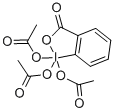
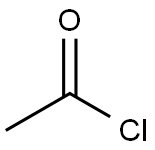


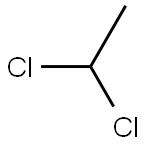
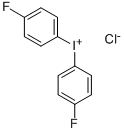

You may like
-
 Diphenyliodonium Chloride CAS 1483-72-3View Details
Diphenyliodonium Chloride CAS 1483-72-3View Details
1483-72-3 -
 Diphenyliodonium chloride 98.00% CAS 1483-72-3View Details
Diphenyliodonium chloride 98.00% CAS 1483-72-3View Details
1483-72-3 -
 Diphenyliodonium chloride 98% CAS 1483-72-3View Details
Diphenyliodonium chloride 98% CAS 1483-72-3View Details
1483-72-3 -
 Diphenyliodonium chloride CAS 1483-72-3View Details
Diphenyliodonium chloride CAS 1483-72-3View Details
1483-72-3 -
 1823368-42-8 98%View Details
1823368-42-8 98%View Details
1823368-42-8 -
 2-(3-(tert-butyl)phenoxy)-2-methylpropanoic acid 1307449-08-6 98%View Details
2-(3-(tert-butyl)phenoxy)-2-methylpropanoic acid 1307449-08-6 98%View Details
1307449-08-6 -
 Ethyl 3-(furan-2-yl)-3-hydroxypropanoate 25408-95-1 98%View Details
Ethyl 3-(furan-2-yl)-3-hydroxypropanoate 25408-95-1 98%View Details
25408-95-1 -
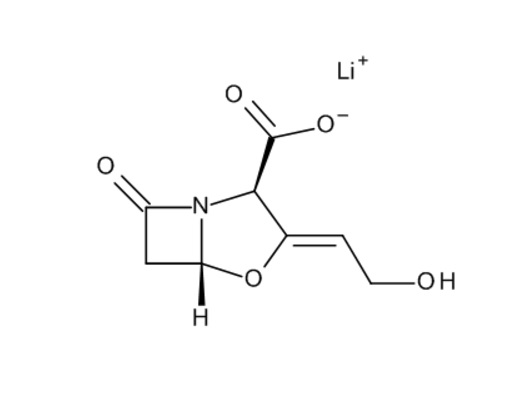 Lithium ClavulanateView Details
Lithium ClavulanateView Details
61177-44-4
Statement: All products displayed on this website are only used for non medical purposes such as industrial applications or scientific research, and cannot be used for clinical diagnosis or treatment of humans or animals. They are not medicinal or edible.